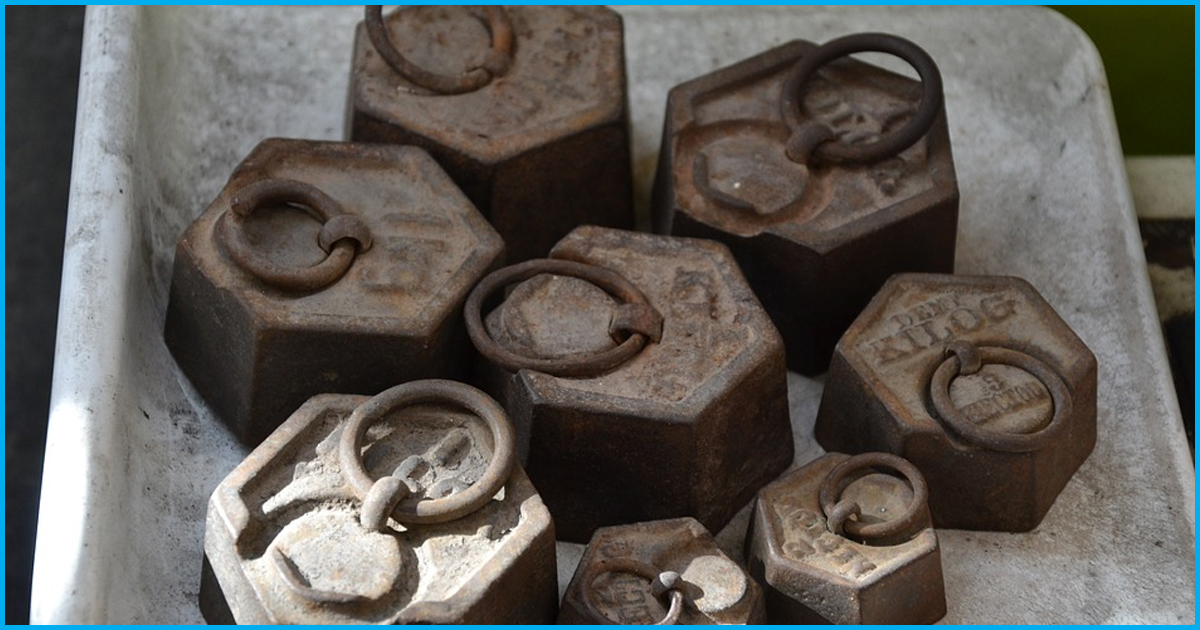History will be made in the field of metrology as one of the most significant units of measurement, the kilogram, which since 1889 has been defined by a lump of metal will be reborn. According to the Guardian, next week, representatives from 57 nations will come together to vote for change at the general conference on weights and measures which is to be held in Versailles, creating the most profound moment in more than a century.
This overhaul of the metric system will do away with the one true kilogram.
The history of measurements
The concept of measurements can be seen way back since the mid-18th century. The concept was mainly developed for the international trades which would require to share common units to make trades simpler.
Reportedly, it was in the late 1700s that King Louis XVI ordered the scientists to find a more sensible solution. The group responsible came up with the idea of a system that was inspired by the natural world. A system that was intended “ for all times, for all people”.
Hence, the one ten-millionth of the distance from the North Pole to the equator came to be known as a metre and the mass of a litre of water as a kilogram. Later, the units were enshrined in a physical object, like a metal bar for metre and a weight for a kilogram.
Currently, the international system of units(SI) is followed all around the world, which consists of seven basic units: the metre for distance, the kilogram for mass, the mole for amount of substance, the second for time, the Kelvin for temperature,the ampere for electrical current, and the candela for luminosity.
How is the Kilogram defined now?
The unit of mass has been the international prototype kilogram(or IPK), nicknamed as Le Grand K for the past 129 years. It is a shiny cylinder of platinum-iridium stored under three sealed bell jars at the international bureau of weights and measures(BIPM), in Severs, west of Paris. All the National metrology labs have copies of this IPK which have been calibrated with the one in Paris. They use it for measurements in their own countries. The copies are returned to Paris in every 40 years or so to check against the original one.
Why the change?
Although not being a bad system, the Le Grand K also has flaws in it. The weight of the lump of metal keeps fluctuating even after being kept in such tight storage. The reason being the platinum picking up pollutants from the air and increasing the weight of the cylinder slightly. When the cylinder is cleaned, the weight goes down, making the recording of the net effect difficult. The copies can put on tens of micrograms in a century, making it unsure that if this measurement of a kilogram is as efficient as it used to be.
Reportedly, another problem that arises with this method is that all other units around the world have been derived from fundamental values, like the metre has been derived from the speed of light in vacuum. Such is not the case for a kilogram. Which remains the only metric unit based on a solitary object.
According to Stephan Schlamminger, a physicist at the National Institute of Standard and Technology, Earth being dependent on a piece of metal for its measurement of a kilogram is quite shameful. “ If aliens ever visit Earth what else would we talk about other than physics? If we want to talk about physics we have to agree on a set of units, but we say our unit of mass is based on a lump of metal we keep in Paris, We’ll be laughing stock of the universe.”
On November 16, representatives from 57 countries will come together to vote for a change in the way kilogram is been measured. The proposed solution is to derive kilogram from a fundamental constant like all the other units.
Revolutionary, yet tense affair
Debates have been made on this proposed solution and has been agreed on by everyone. Even though the vote being an essentially done deal, the casting of the votes on Friday will be a tense situation.” It will be nerve-racking”, says Schlamminger, who will also be in Versailles to cast a vote.
Stuart Davidson, the head of the mass metrology at the national physical laboratory in Teddington told the Guardian that he is happy to know that this issue will be resolved once and for all. “We’ll know, at least, that no-one has stood up and said this is rubbish, we’re not going with it”, added Davidson.
The effects of it
With a positive vote on November 16, the new system of units will come into effect on 20 May 2019. The updates will include a change in mole, Kelvin and ampere too. Although the change in the way of measurement of a kilogram is a revolutionary thing, its effects will hardly be felt beyond the world of metrology. There will be no significant change in the way people weigh different items. This elegant system will reportedly be working behind the scenes.











